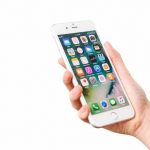
Staying connected has become a necessity, even when you are working out. Why should you disconnect when you can catch up with so many things! But, public Wi-Fi poses great security threats because any hacker or stranger can connect to it. So security on public Wi-Fi is a big question mark and it should be avoided as much as you can.
However, it doesn’t mean that going online on a public Wi-Fi is a mission impossible. There are some tricks and smarter ways to stay online on the public Wi-Fi of your gym securely.
How do I secure my phone on public Wi-Fi
There are multiple ways you can make your workout experience more lively by staying connected and yet remaining secure online.
Use VPN
VPN is by far the best and one of the most secure ways. It masks your identity from your ISP, encrypts your data, and enables secured net surfing wherever you are.
Thinking about getting a VPN for your iPhone but don’t know how to set up VPN on iPhone? Install the VeePN app for iPhone and follow the steps for automatic setup. You can set up VPN on your iPhone with a few clicks.
Now you may wonder, what does VPN on iPhone do? It will provide you with security on public Wi-Fii. You can go online, do shopping, and send and receive online payments without any worry about snoopers and hackers. VeePN will also give you access to geo-restricted data and it will rid you of every unsecure network, and whatnot!

HTTPS
Chrome always alerts you when you are on an HTTP website. It means it is not secure and your data may be hacked. Most phishing cases, data snooping, and other illegal cyber activities are carried out on unsecured websites. That is why it is highly recommended that you only visit websites with security certificates and start with HTTPS.
Verify Public Wi-fi Network
People love free Wi-Fi and it is perfectly fine, but remember that often, it is not free. It comes at the cost of your information. Always remember to verify the public Wi-Fi name from the owner of the cafe or gym before you connect to it. Many hackers create free Wi-Fi or hotspot fake accounts even if there is a password to it. It’s an open scam, however, many people don’t realize it.
Don’t Share Personal Details
For suppose, you need to share files or connect with someone on public Wi-Fi, make sure you don’t use your personal information, such as email addresses, phone numbers, passwords, etc. Sharing personal details on public Wi-Fi can prove to be highly dangerous for you as you never know who else is online on that network. Your data becomes highly vulnerable on public Wi-Fi networks.
Don’t Connect to Every Public Wi-Fi
If your job needs you to be online all the time then ensure that you don’t get on every public Wi-Fi. Wi-Fi in shopping malls, cafes, and other public places are extremely insecure. Connect to a trusted public Wi-Fi, such as Starbucks Wi-Fi, as they are already charging you for the services and so it will be highly secured.
Limit or Discontinue File Sharing over Public Wi-Fi
If you need to be online on public Wi-Fi then disable any file sharing or airdrops. Simply go to your settings and disable the option of receiving files or air drops from any unfamiliar source. It limits the threat to your data and makes online surfing much more secure.
Enable Firewall
A firewall creates a wall between two connected computers or devices and analyzes data flow. It is efficient in stopping any hacker activity and immediately blocking it. Before going online on public Wi-Fi, go to your settings and enable a firewall for data protection.

Can people steal your data on public Wi-Fi?
Absolutely! Cyberattacks are real and snoopers are always ready to steal data from individuals as well as large companies. Always be cautious when you go online on public Wi-Fi, do not share personal information, don’t visit an unknown website, and never receive files from unfamiliar sources.
Is it safer to use public Wi-Fi or data?
Data becomes a highly expensive option therefore, people prefer public Wi-Fi, not knowing that it may cost them their online identity. Only connect to trustworthy public Wi-Fi, and only when it is necessary.
Conclusion:
Keep your phone software, Firewall, Antivirus, and VPN updated on your devices. Enable any system patch-ups or debugging to ensure maximum data protection and online security. Educate yourself and the people around you about cyber security and its benefits so that no one falls prey to snoopers or hackers.











